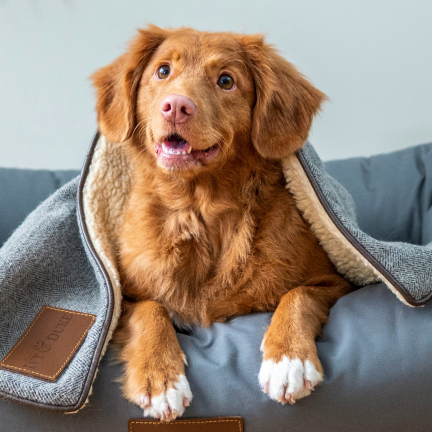Blog:A Pet Owner's Guide to Surgical Procedures

Just like human surgeries, pet surgical procedures range from routine operations such as spaying and neutering to more complex surgeries like tumor removal or orthopedic procedures. The thought of your pet undergoing surgery can be daunting. However, it's essential to remember that these procedures are performed by trained veterinary professionals who prioritize your pet's health and comfort.
Understanding the nature of the surgical procedure, its necessity, and potential outcomes can alleviate some of your concerns. Knowledge is power, and the more you know about what your pet is going through, the better equipped you will be to support them and ensure they receive the best possible care.
Common Reasons for Pet Surgical Procedures
Pet surgical procedures are performed for a variety of reasons. For some pets, surgery may be necessary as a preventative measure. For example, common procedures such as spaying and neutering not only prevent unwanted pregnancies but also reduce the risk of certain types of cancer and behavioral issues.
In other cases, surgery is required to treat specific conditions or illnesses. This could include the removal of cancerous tumors, the repair of broken bones, or the correction of congenital abnormalities. Surgical intervention may also be necessary in emergency situations, such as when a pet has swallowed a foreign object or is suffering from a life-threatening condition like bloat.
Regular check-ups with your veterinarian are crucial to identify potential health issues early. If surgical intervention is required, understanding why the procedure is necessary and what it involves will help you make informed decisions about your pet's care.
Preparing Your Pet for Surgery
Preparing your pet for surgery is an essential step in ensuring a successful outcome. Your vet will provide specific instructions based on the type of procedure your pet will undergo. This may include fasting your pet before surgery to prevent complications during anesthesia. It's important to follow these instructions carefully.
Additionally, it's also important to provide emotional support for your pet. Surgery can be stressful for pets, and they may pick up on your anxiety. Keeping a calm and positive demeanor can help reassure your pet. Providing a comfortable and quiet environment for them to rest in before and after the surgery is also beneficial.
Finally, make sure you understand the cost and payment options for the procedure. Veterinary surgeries can be expensive, and it's important to plan for this. Discussing the cost with your vet beforehand can help you avoid unexpected expenses and stress.
Understanding the Different Types of Pet Surgical Procedures
There are several types of pet surgical procedures, and understanding the specifics of your pet's surgery can help you prepare. Routine surgeries, such as spaying and neutering, are commonly performed and generally have a low risk of complications. However, more complex surgeries, such as orthopedic procedures or tumor removal, may require more extensive post-operative care.
Emergency surgeries, such as those performed to remove a foreign object or treat a life-threatening condition, are often more stressful for both pets and owners. These procedures are typically more complex and may require a longer recovery period. Understanding the risks and potential outcomes of these procedures can help you make informed decisions.
Lastly, some surgeries may be elective, such as cosmetic procedures or surgeries to correct non-life-threatening conditions. While these procedures may improve your pet's quality of life, they should be carefully considered, weighing the potential benefits against the risks and costs.
What to Expect During Pet Surgical Procedures
The specifics of what to expect during pet surgical procedures will vary depending on the type of surgery and the individual pet. However, in general, your pet will be put under general anesthesia to ensure they do not feel any pain during the procedure. You will typically drop your pet off in the morning and pick them up later in the day once they have recovered from the anesthesia.
During the surgery, your veterinarian will monitor your pet's vital signs to ensure they are stable. They will then perform the procedure, taking care to minimize tissue damage and manage any bleeding. Once the surgery is complete, your pet will be moved to a recovery area where they will be closely monitored until they are ready to go home.
It's important to remember that while surgery can be stressful for both you and your pet, it is often the best course of action to ensure their health and wellbeing. Your vet will keep you informed about the procedure and provide updates on your pet's progress.
Post-Operative Care for Pets
Post-operative care is crucial to your pet's recovery. Your vet will provide specific instructions regarding medication, wound care, dietary restrictions, and activity levels. It's important to follow these instructions closely to prevent complications.
Your pet may be groggy or disoriented after surgery due to the anesthesia. Providing a quiet and comfortable place for them to rest can help them recover. Monitor your pet closely for any signs of discomfort or complications, such as changes in appetite or behavior, vomiting, diarrhea, or difficulty urinating.
Regular follow-up visits with your vet will ensure your pet is healing properly. These visits are an opportunity for your vet to assess your pet's recovery, address any concerns you may have, and adjust treatment plans as necessary.
Ensure Your Pet Receives the Best Care
Pet surgical procedures can be a stressful time for both pets and their owners. However, by understanding what to expect and how to prepare, you can ensure your pet receives the best possible care. Your vet is your partner in your pet's health. Don't hesitate to ask questions or voice concerns.
For more information on pet surgical procedures, contact Spencer Springs Animal Hospital at our office in Las Vegas, Nevada. Please call (702) 896-9999 to discuss any questions with our team of experts or to schedule an appointment today.



